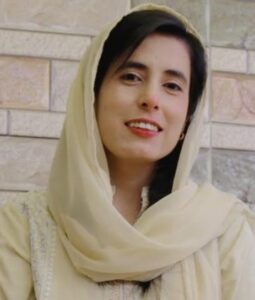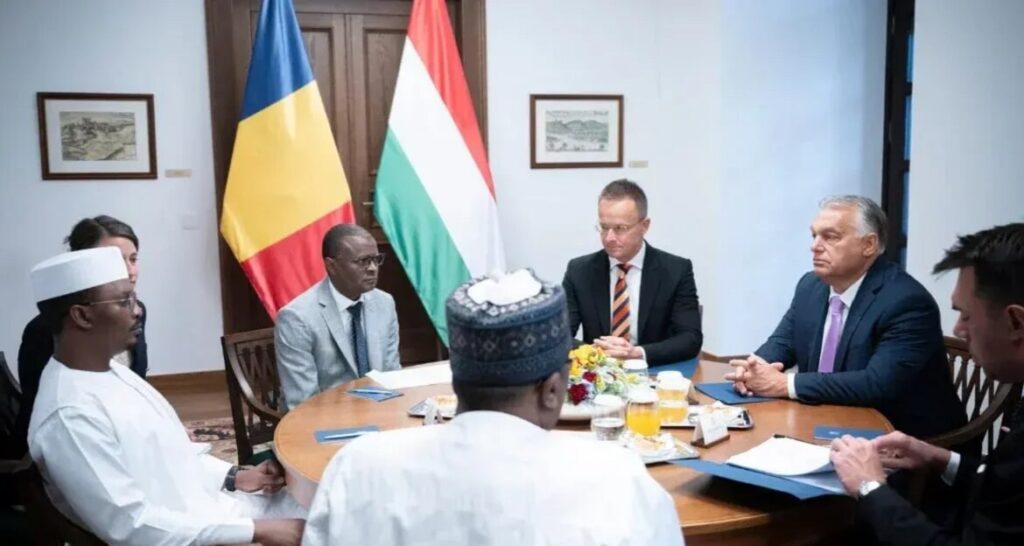By Shahzadi Irrum
In recent years, France, the historic western colonial power, has been increasingly pushed out of Africa, while Russia has consolidated its military and political weight in the region.

Hungary, whose foreign policy is considered to be more aligned with Russia than other European Union (EU) countries, has started expanding its footprints on the continent. Recently, Hungary and Chad’s leaders met in Budapest where they signed an agreement for Hungary to deploy 200 troops in Chad.
According to Hungary, the aim of deploying troops in Chad is to curb the influx of illegal immigrants to Europe, counter terrorism, and assist Chad economically. Hungary believes that it is impossible to stop migration from Africa to Europe without the countries of the Sahel region. This is why Hungary is building a partnership with Chad and has proposed the European Peace Facility to send nearly €14 million of its contribution to the country. Hungary has also pledged $1 million to enhance Chad’s health system, despite domestic criticism regarding its own hospitals’ lack of basic supplies. Indeed, it is quite astonishing that while Hungary’s people were grappling with the lack of medicines, and other supplies, in their hospitals, why is the country playing the role of Hatim al-Tai (Arabian king who lived during the 6th century, renowned for his generosity) towards the people of Chad?
Analysts contend that Hungary’s military presence in Chad, under the guise of combating illegal immigration and terrorism, is indeed a step to advance hidden agendas. Otherwise, there’s no logical argument for Hungary to deploy troops in Chad, a country that ranks among the poorest in the world and uncharted territory for Hungarian diplomacy. It is also absurd to imagine how these 200 soldiers could prevent illegal immigration from a country that is significantly larger than Hungary. Experts also express concern that Hungary’s true intention might be linked to exploiting Chad’s resources, which include abundant and lucrative minerals such as gold, oil, uranium, and other reserves. Besides, the most reasonable explanation may involve providing the Hungarian military with a training ground to test the latest military technology the country has recently attained.
Coupled with this, Hungary’s other concealed agenda might be to adopt Vladimir Putin’s footsteps, due to their close relationship. Just like Moscow, with minimal security investments, Budapest is also trying to gain political momentum at a time when France’s presence in the region is coming to an end. This goes in line with Moscow’s plans to squeeze France out of Africa. Sending the Hungarian military overseas while rejecting and blocking military aid to Ukraine, makes Hungary even more likely to act in Moscow’s favor.
Russia has more influence in Africa than the West expects. Despite its operations in Ukraine, it has deployed a few thousand troops in the central Sahel region. However, in countries without a Russian military presence, Hungary is intervening, starting with the support to the junta and authoritarian regime in Chad. This move demonstrates Hungary’s ambitions to exert global influence beyond its size.
Despite the critics’ reaction, the EU has welcomed Hungary’s initiative. Here the EU’s stance over the Hungary-Chad agreement is surprising and nothing less than political opportunism. It seems that the EU is more interested in maintaining its unity than in addressing the evident issues at hand. By backing Hungary, they are essentially overlooking the fact that this so-called effort is possibly driven more by the desire for political and financial gains rather than a genuine concern to curb the influx of illegal immigration and counter terrorism. This is why many are left wondering, whether Hungary truly cares about the welfare of those in need or if it is merely playing a political chess game in Africa, much like France.
France, for centuries, held much of Africa under its domination, forcing African people into a life of servitude, ruthlessly plundering the continent’s resources. Moreover, alongside France, other Western countries also benefited immensely from Africa’s riches, including through the brutal slave trade and the acquisition of minerals at derisory prices. These oppressive actions led the African people to rebel against France, and the West in general.
If we closely analyze the current situation, it’s like a cricket match being played on African soil. In this match, the global umpires are biased toward their favorite team (the West) and are determined to see them win, while ignoring the legitimate appeals of the opposing team (Africa) by not signaling any dismissals. This is forcing the opposing team to resort to bouncers, pushing the batting team into a retired hurt state, and paving the way for their own victory. So far, they have been quite successful in it. They have forced an all-rounder like France (who has extensive experience playing against team Africa) to retire hurt and head back to the pavilion. In response, the West has decided to send a tailender like Hungary (who has limited experience playing against team Africa) to the field. Now only time will prove, whether Hungary will simply retire hurt or if its inning will end tragically, like that of the late cricketer Phillip Hughes.
Author: Shahzadi Irrum – Assistant Research Fellow (Balochistan Think Tank Network, Quetta).
(The opinions expressed in this article are solely those of the author and do not necessarily reflect the views of World Geostrategic Insights).







